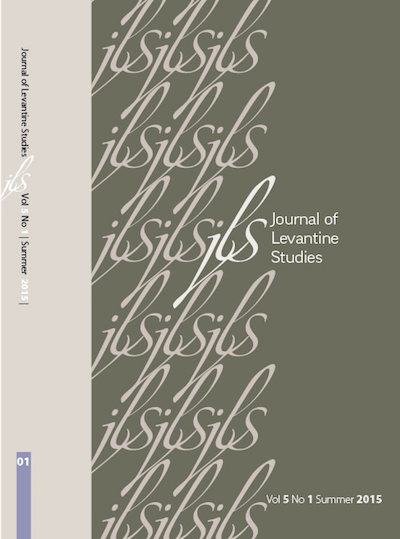-
Add to cartQuick view
The Foundational Antinativism of Mizrahi Literature
Theoretically or empirically, is it possible that a man could have written the first modern feminist story? Is it similarly possible that an Ashkenazi woman could have written the first protofeminist literary Mizrahi text? Answering in the affirmative, this essay unveils the antinativist Ottoman foundation for what contemporary scholars of Hebrew literature call “Mizrahi literature.” It does so by translating, for the first time into English, parts of a 3,700 word Hebrew story titled “Flora Saporto,” which was published in February 1914 in the periodical Haherut (1909–1917). The text was published under the pseudonym Bat Zvi, but it was written by suffragist and doyen of early modern Hebrew literature Nehama Puhachevsky (1869–1934). Bizarrely, however, during the century since its publication, this foundational story has been neither discussed nor analyzed by any scholar of Hebrew literature.
$5.00Free!Add to cartQuick view -
Add to cartQuick view
Flora Saporto as a Window into Changes in the Lives of Sephardi Women in Palestine at the End of the Ottoman Era
Free!Theoretically or empirically, is it possible that a man could have written the first modern feminist story? Is it similarly possible that an Ashkenazi woman could have written the first protofeminist literary Mizrahi text? Answering in the affirmative, this essay unveils the antinativist Ottoman foundation for what contemporary scholars of Hebrew literature call “Mizrahi literature.” It does so by translating, for the first time into English, parts of a 3,700 word Hebrew story titled “Flora Saporto,” which was published in February 1914 in the periodical Haherut (1909–1917). The text was published under the pseudonym Bat Zvi, but it was written by suffragist and doyen of early modern Hebrew literature Nehama Puhachevsky (1869–1934). Bizarrely, however, during the century since its publication, this foundational story has been neither discussed nor analyzed by any scholar of Hebrew literature.
Add to cartQuick view
- Home
- About JLS
- Issues
- Vol. 9 No. 1 | Summer 2019
- Vol 8 No 2 Winter 2018
- Vol. 8, No. 1: Summer 2018
- Vol. 7, No. 2: Winter 2017
- Vol. 7, 1: Summer 2017
- Vol. 6, Summer/Winter 2016
- Vol. 5, No. 2 Winter 2015
- Vol. 5, No. 1 Summer 2015
- Vol. 4, No. 2 Winter 2014
- Vol. 4, No. 1 Summer 2014
- Vol. 3, No. 2 Winter 2013
- Vol. 3, No. 1 Summer 2013
- Vol. 2, No. 2 Winter 2012
- Vol. 2, No. 1 Summer 2012
- Vol. 1, No. 2 Winter 2011
- Vol. 1, No. 1 Summer 2011
- Blog
- dock-uments
- Subscribe
- Submit
- Contact


